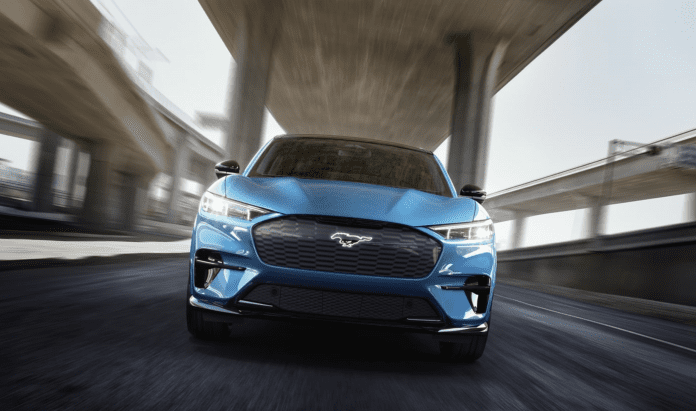Shortly after the Treasury Department publicized its revisions to the Inflation Reduction Act’s EV tax credit rules, Ford revealed that most of its electric lineup will no longer qualify for the full amount.
While the law originally allowed a wide selection of EVs to qualify for up to $7,500, the Treasury’s changes tighten domestic sourcing restrictions for batteries, in terms of both materials and assembly. When the rules go into effect on April 17, many vehicles which originally qualified for the full tax credit could lose a large portion of the incentive.
Ford now says that four of its six electric models will only earn $3,750 under the revisions. These include the Escape Hybrid, Mustang Mach-E, Lincoln Corsair Grand Touring and E-Transit. The brand’s remaining EVs will still qualify for the full $7,500 tax credit, those being the F-150 Lightning pickup and Lincoln Aviator Grand Touring. After closing its Lightning factory for over a month due to a battery issue, the automaker now plans to hire an additional 300 employees to ramp up the truck’s production.
Other manufacturers are likely to make similar reports in the coming days. Even before the updates were released, brands such as Tesla were preparing to lose tax credits on high-profile vehicles such as the Model 3. According to the Treasury’s statement, the restrictions will increase steadily over the next several years, until they eventually require EV batteries to be assembled exclusively in the U.S., and made entirely from domestically sourced materials.




